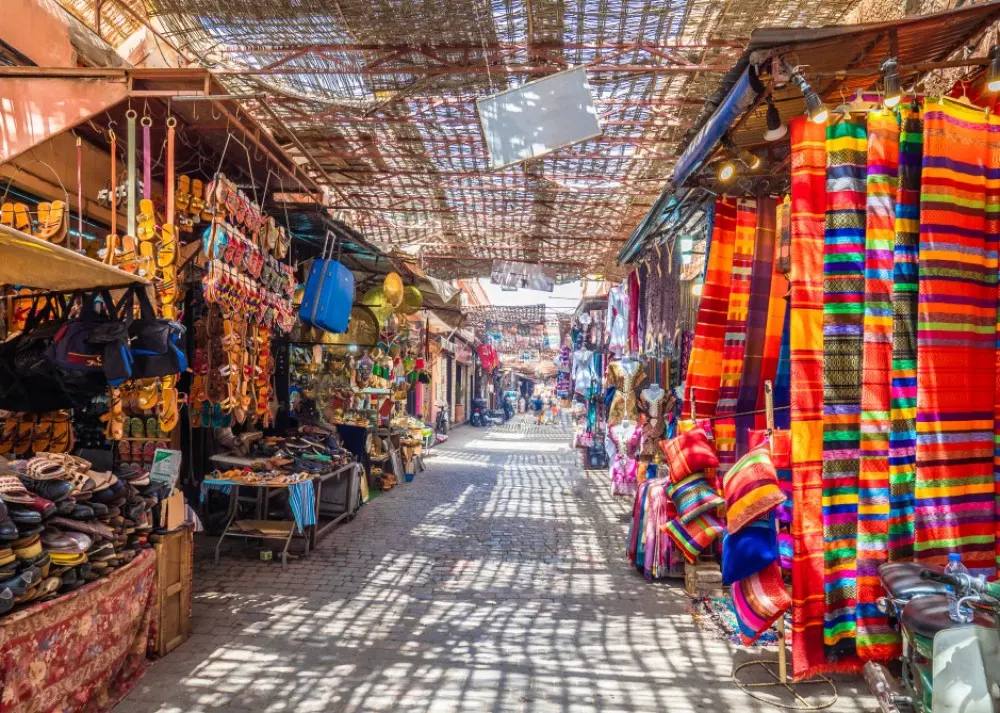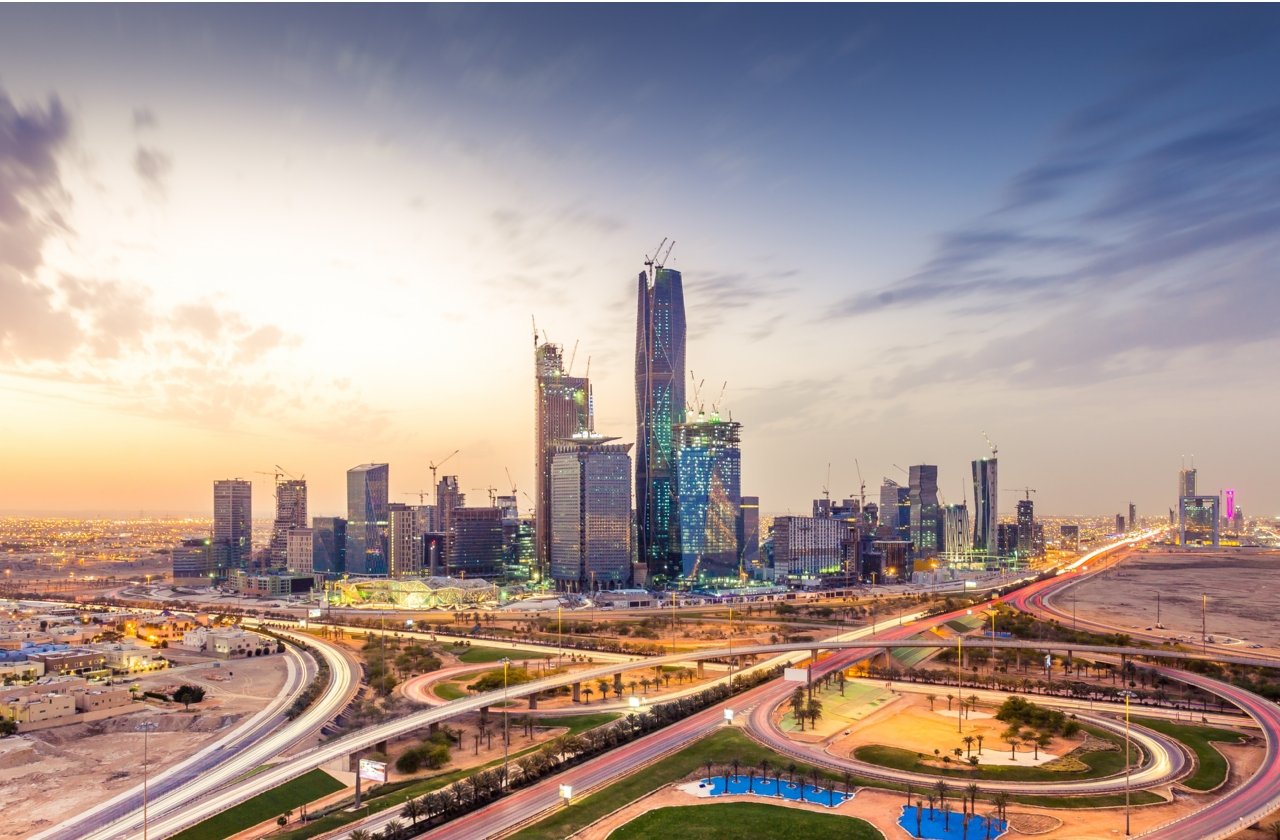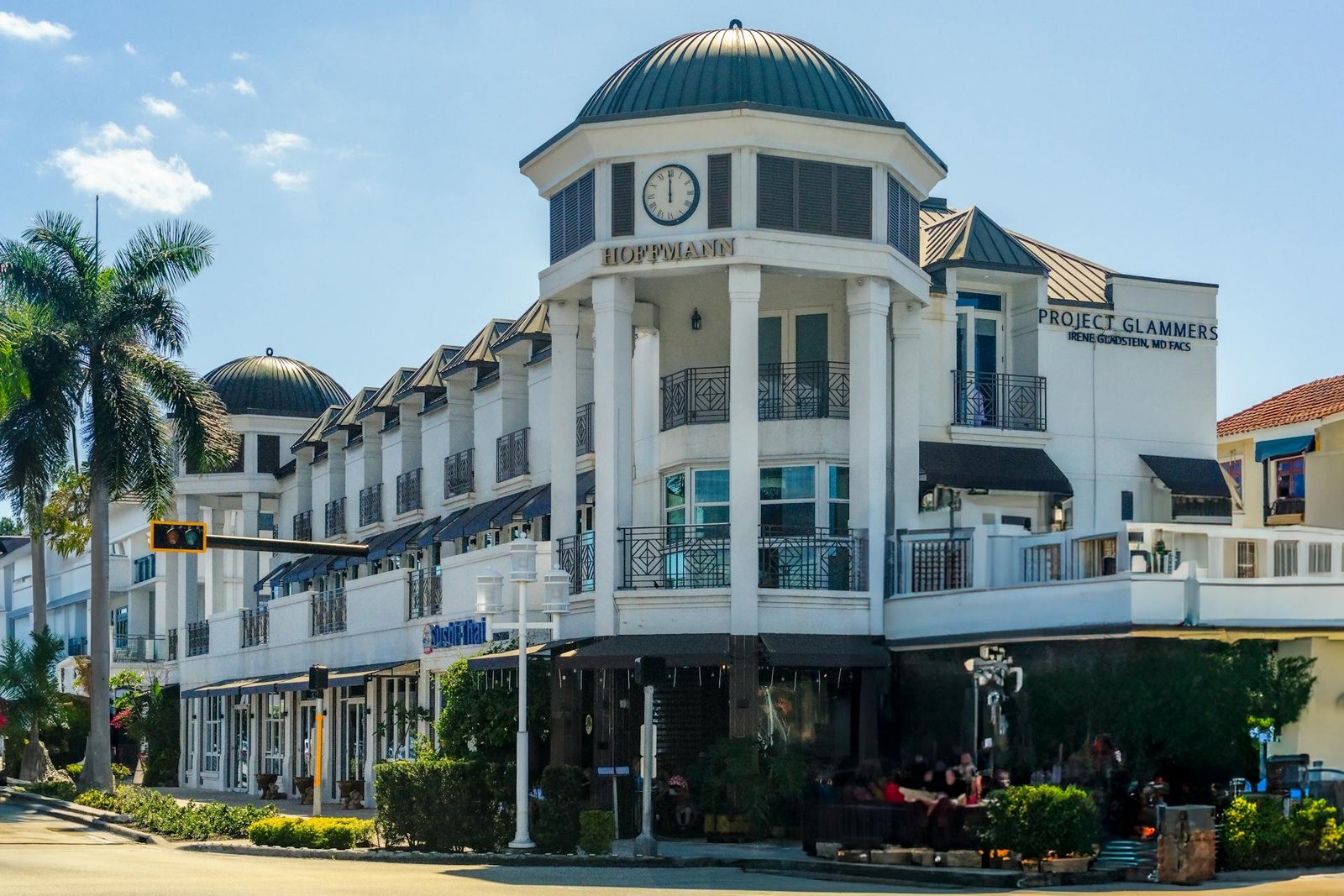When I first started planning my shopping adventures in Riyadh, I honestly had no idea just how diverse and rich the city’s product offerings would be. What to buy in Riyadh? The question seemed simple at first, but I quickly discovered that the Saudi capital offers an incredible array of authentic Saudi Arabian products to buy—from luxurious oud perfumes and gleaming gold jewelry to traditional handicrafts and world-renowned dates. Shopping in Riyadh isn’t just about acquiring goods; it’s about bringing home pieces of Arabian culture, history, and craftsmanship that tell the story of this fascinating kingdom.
The beauty of shopping in Riyadh lies in its diversity. You can browse cutting-edge luxury malls one day and explore centuries-old traditional souks the next, each offering unique Saudi Arabian products to buy that you simply won’t find anywhere else. I’ve spent countless hours wandering through the traditional souks in Riyadh, haggling with friendly merchants, sampling exotic spices, and discovering hidden gems that have become my most treasured souvenirs.
In this comprehensive guide, I’ll share everything I’ve learned about what to buy in Riyadh, where to find the best products, how to verify quality, and which Saudi Arabian products to buy make the most meaningful gifts and souvenirs. Whether you’re looking for luxury items, traditional handicrafts, or authentic local products, this insider’s guide will help you navigate Riyadh’s shopping scene like a pro and ensure you bring home treasures that capture the essence of Saudi Arabia.
Why Riyadh is a Shopper’s Paradise for Authentic Saudi Products
Riyadh occupies a unique position in Saudi Arabia’s shopping landscape. As the capital city, it serves as a hub where products from across the kingdom converge, offering visitors access to the widest variety of authentic Saudi Arabian products to buy. What surprised me most about shopping in Riyadh was the sheer authenticity of the goods available—this isn’t a city that caters primarily to tourists with mass-produced souvenirs. Instead, Riyadh’s markets and shops serve primarily local customers, which means you’re buying the same high-quality products that Saudis themselves purchase.
The city’s shopping scene perfectly balances tradition and modernity. You can explore the best shopping malls in Riyadh for contemporary Saudi brands and international luxury goods, then venture into historic souks where merchants have been selling traditional products for generations. This diversity makes Riyadh an ideal destination for finding what to buy in Riyadh—whether you’re seeking premium luxury items or budget-friendly traditional crafts.
Another advantage of shopping in Riyadh is the competitive pricing. Because the city serves a large local market rather than primarily tourists, prices tend to be more reasonable than in tourist-oriented destinations. I’ve found that with some basic negotiation skills (especially in traditional souks), you can secure excellent deals on authentic Saudi Arabian products to buy that would cost significantly more elsewhere.
Oud and Traditional Arabian Perfumes: The Signature Scent of Saudi Arabia
If there’s one product that epitomizes what to buy in Riyadh, it’s oud. When I first encountered oud in a traditional perfume shop, I was overwhelmed by the complexity and richness of the scent—woody, smoky, slightly sweet, and utterly captivating. Oud, also known as agarwood, is one of the most expensive natural raw materials in the world, and Saudi Arabia is renowned for its exceptional oud products.
Understanding Oud and Arabian Perfumes
Oud is derived from the resin of agarwood trees that have been infected with a specific type of mold. The tree produces a dark, fragrant resin in response to the infection, and this resin is what’s harvested to create oud oil and oud-based perfumes. The process is rare and time-consuming, which explains why pure oud oil can cost hundreds or even thousands of dollars per bottle.
When shopping for oud and perfumes in Riyadh, you’ll encounter several types:
Pure Oud Oil: This is the most expensive and concentrated form. A tiny amount goes a long way, and the scent is intense and long-lasting. Pure oud oil is typically applied to pulse points—wrists, neck, and behind the ears.
Oud-Based Perfumes: These blend oud with other fragrances to create more complex scent profiles. They’re generally more affordable than pure oud oil and offer a wider variety of fragrance experiences.
Bakhoor: These are scented wood chips or incense that you burn to fragrance your home, clothing, and hair. Bakhoor is an integral part of Saudi hospitality culture, and I’ve found it makes an excellent gift because it’s relatively inexpensive and offers an authentic Arabian experience.
Traditional Arabian Perfumes: Beyond oud, Riyadh’s perfume shops offer a variety of traditional Arabian fragrances, including rose, musk, amber, and various floral and spicy combinations.
Where to Buy Oud and Perfumes in Riyadh
The best places to buy oud and perfumes when shopping in Riyadh include:
Traditional Souks: Al Zal Market is legendary for its perfume selection. I’ve spent hours in this souk sampling different oud oils and bakhoor varieties. The vendors are knowledgeable and patient, allowing you to smell multiple options before making a decision. Prices are negotiable, especially for larger purchases.
Al Maigliah Souk: This souk is specifically renowned for its concentration of perfume shops. It’s where locals go to buy oud and traditional perfumes, which means you’re getting authentic products at fair prices.
Branded Perfume Stores: For those who prefer the assurance of established brands, stores like Arabian Oud, Abdul Samad Al Qurashi, and Ajmal Perfumes have locations throughout Riyadh’s malls. These retailers offer high-quality oud products with guaranteed authenticity, though prices are generally higher than in traditional souks.
Tips for Buying Oud and Perfumes
When I first started buying oud in Riyadh, I made some mistakes that taught me valuable lessons:
- Sample extensively: Don’t rush. Apply samples to your wrist and let them develop over several hours. Oud fragrances change significantly as they dry down.
- Understand pricing: Pure oud oil should be expensive. If you find what’s labeled as “pure oud” at a suspiciously low price, it’s likely diluted or synthetic.
- Ask about origin: The best oud comes from specific regions—Cambodia, India, and Bangladesh are particularly prized. Don’t hesitate to ask vendors about the origin of their oud.
- Negotiate: In traditional souks, prices are negotiable. Start with an offer 20-30% below the asking price.
- Buy small quantities first: Oud is potent. A small bottle lasts a long time, so don’t over-purchase on your first visit.
- Consider bakhoor for gifts: Bakhoor is affordable, authentic, and makes excellent gifts. It’s also easier to transport than liquid perfumes.
Dates: Saudi Arabia’s Golden Treasure
Dates hold a special place in Saudi culture and cuisine, and they’re among the most popular Saudi Arabian products to buy. When I first tasted premium Saudi dates, I was genuinely surprised by the complexity of flavors—some varieties taste like caramel, others have notes of honey or molasses, and the textures range from soft and creamy to firm and chewy.
Understanding Date Varieties
Saudi Arabia produces some of the world’s finest dates, and when considering what to buy in Riyadh, dates should be at the top of your list. The most popular varieties include:
Ajwa Dates: These dark, almost black dates from Madinah are considered the most prestigious. They have a unique, slightly dry texture and a complex flavor profile. Ajwa dates are particularly significant in Islamic tradition and make meaningful gifts.
Sukkary Dates: These are my personal favorite. Sukkary dates are exceptionally sweet (the name means “sugary”), with a soft, almost melt-in-your-mouth texture and a flavor reminiscent of caramel and honey.
Medjool Dates: Large, plump, and sweet, Medjool dates are popular worldwide. Saudi Medjool dates are particularly high quality.
Safawi Dates: These medium-sized, dark dates have a chewy texture and a sweet, slightly fruity flavor.
Khudri Dates: These are more affordable and have a firmer texture, making them ideal for cooking and baking.
Where to Buy Dates in Riyadh
When shopping for dates in Riyadh, you have several excellent options:
Bateel: This premium date retailer has locations in major malls throughout Riyadh. Bateel offers beautifully packaged dates that make perfect gifts. The quality is exceptional, though prices are premium. I particularly appreciate their date-filled chocolates and date products.
Traditional Souks: For better prices and a more authentic experience, visit the date sections of traditional souks like Al Batha Market. You can sample different varieties and buy in bulk at significantly lower prices than branded retailers.
Supermarkets: Modern supermarkets in Riyadh offer good-quality dates at reasonable prices. This is a convenient option if you’re looking for everyday eating dates rather than premium gift varieties.
Specialized Date Shops: Riyadh has numerous shops dedicated exclusively to dates. These offer the widest variety and often the best prices for bulk purchases.
Tips for Buying Dates
Based on my experiences shopping for dates in Riyadh:
- Sample before buying: Reputable vendors will allow you to taste dates before purchasing. Take advantage of this to find varieties you genuinely enjoy.
- Check freshness: Fresh dates should be plump and slightly glossy. Avoid dates that look dry or have crystallized sugar on the surface (unless you’re specifically buying dried dates).
- Consider packaging: If you’re buying dates as gifts, invest in nice packaging. Many shops offer beautiful boxes and containers specifically designed for gifting.
- Buy date products: Beyond fresh dates, consider date jam, date syrup, date-filled chocolates, and date coffee. These make unique gifts and are easier to transport.
- Understand storage: Dates keep well at room temperature for several weeks, but for longer storage, refrigerate or freeze them.
- Negotiate in souks: Date prices in traditional markets are negotiable, especially for bulk purchases.
Gold Jewelry: Riyadh’s Glittering Treasure
Gold jewelry is one of the most popular Saudi Arabian products to buy, and for good reason. Saudi gold is renowned for its high purity (typically 21K or 22K) and exceptional craftsmanship. When I first visited the Gold Souk in Riyadh, I was mesmerized by the sheer quantity and variety of gold jewelry on display—entire shop windows filled with gleaming necklaces, bracelets, rings, and earrings.
Understanding Gold in Riyadh
Shopping for gold in Riyadh differs significantly from buying gold jewelry in Western countries. Here’s what you need to know about what to buy in Riyadh when it comes to gold:
Purity Standards: Saudi gold is typically 21K (87.5% pure) or 22K (91.6% pure), which is significantly higher than the 14K or 18K common in Western countries. This higher purity gives Saudi gold its distinctive rich, yellow color.
Pricing Structure: Gold prices in Riyadh are based on three factors:
- Weight: Measured in grams
- Daily gold price: Based on international gold markets
- Craftsmanship fee: The labor and artistry involved in creating the piece
This transparent pricing structure means you’re paying for the actual gold content plus a reasonable markup for craftsmanship, rather than brand premiums.
Design Variety: You’ll find everything from traditional Arabian designs featuring intricate patterns and cultural motifs to contemporary styles that appeal to modern tastes. Many shops also offer custom design services.
Where to Buy Gold in Riyadh
The best locations for buying gold when shopping in Riyadh include:
Gold Souk (Al Batha District): This is the definitive destination for gold shopping in Riyadh. The souk features dozens of jewelry shops, creating a competitive environment that keeps prices reasonable. I recommend visiting multiple shops to compare prices and designs before making a purchase.
Luxury Malls: High-end malls like Kingdom Centre and Riyadh Park feature upscale jewelry stores offering contemporary designs and international brands. Prices are higher than in the Gold Souk, but you get the convenience and assurance of established retailers.
Specialized Jewelry Districts: Beyond the main Gold Souk, Riyadh has several streets and districts known for jewelry shops. These offer good variety and competitive prices.
Tips for Buying Gold in Riyadh
My experiences buying gold in Riyadh have taught me several important lessons:
- Verify purity: Reputable dealers will show you the purity stamp on the jewelry. For significant purchases, ask for a certificate of authenticity.
- Understand the pricing: Ask the shopkeeper to break down the price—weight of gold, current gold price per gram, and craftsmanship fee. This transparency helps you compare prices across shops.
- Negotiate: Gold prices are negotiable, particularly the craftsmanship fee. Start with an offer 15-20% below the asking price.
- Compare shops: Visit at least 3-5 shops before making a purchase. This gives you a sense of fair pricing and available designs.
- Consider custom work: Many shops offer custom design services at reasonable prices. If you have a specific design in mind, this can be an excellent option.
- Check daily gold prices: Gold prices fluctuate daily. If you’re making a significant purchase, check the current international gold price to ensure you’re getting a fair deal.
- Keep receipts: Always get a detailed receipt for gold purchases, especially if you’re taking jewelry out of the country.
Traditional Saudi Clothing: Thobes, Abayas, and Accessories
Traditional Saudi clothing makes for meaningful and practical Saudi Arabian products to buy. When I purchased my first thobe (the traditional white robe worn by Saudi men), I was impressed by the quality of the fabric and the attention to detail in the stitching. These aren’t costume pieces—they’re genuine garments that Saudis wear daily.
Understanding Traditional Saudi Clothing
Thobes: These long, flowing robes are the standard dress for Saudi men. Thobes are typically white, though you’ll also find them in other colors for different occasions. The fabric quality varies significantly, from basic cotton to premium Egyptian cotton and even silk blends. A high-quality thobe is surprisingly comfortable and practical, especially in hot weather.
Abayas: These elegant black cloaks are traditionally worn by Saudi women. Modern abayas come in various styles, from simple and traditional to elaborately embroidered designer pieces. I’ve seen abayas that are genuine works of art, featuring intricate embroidery, beadwork, and contemporary design elements.
Ghutrah and Agal: The ghutrah is the traditional headscarf worn by Saudi men, typically in white or red-and-white checkered patterns. The agal is the black cord that holds the ghutrah in place. Together, they make an iconic and meaningful souvenir.
Accessories: Beyond the main garments, you’ll find traditional accessories like embroidered shawls, decorative belts, and traditional footwear.
Where to Buy Traditional Clothing in Riyadh
When shopping for traditional clothing in Riyadh:
Traditional Souks: Deira Souq is excellent for traditional clothing. You’ll find both ready-made garments and custom tailoring services. Prices are reasonable, and the quality is generally good.
Specialized Boutiques: Riyadh has numerous boutiques specializing in traditional clothing. These offer higher-quality fabrics and more refined tailoring, though at premium prices.
Modern Malls: Contemporary Saudi fashion brands in malls offer modern interpretations of traditional clothing—abayas with contemporary cuts, thobes in fashionable fabrics, etc.
Custom Tailors: For the best fit and quality, consider having traditional clothing custom-made. Many shops in traditional souks offer tailoring services at reasonable prices.
Tips for Buying Traditional Clothing
Based on my experiences:
- Check fabric quality: Feel the fabric and examine the stitching. Higher-quality garments use better materials and show superior craftsmanship.
- Consider custom tailoring: For the best fit, especially for thobes, custom tailoring is worth the small additional cost.
- Ask about care instructions: Some traditional garments require special care. Make sure you understand how to clean and maintain them.
- Try before buying: If possible, try on garments to ensure proper fit and comfort.
- 5.Look for embroidery details: For abayas, examine the quality of any embroidery or embellishments. Hand embroidery commands premium prices but offers superior quality.
- Negotiate in souks: Prices for traditional clothing in souks are negotiable, especially if you’re buying multiple items.
Traditional Saudi Handicrafts and Artisan Products
Among the most meaningful Saudi Arabian products to buy are traditional handicrafts that reflect centuries of Arabian artistry and culture. These items aren’t mass-produced souvenirs—they’re authentic pieces of Saudi heritage.
Al-Qatt Al-Asiri Paintings and Products
Al-Qatt Al-Asiri is a UNESCO-recognized traditional art form from the Asir region, featuring vibrant geometric patterns and bright colors. When I first saw Al-Qatt paintings, I was struck by their boldness and complexity—these aren’t simple designs but sophisticated artistic expressions.
You can find Al-Qatt art on canvas, as well as on modern products like coasters, trays, coffee mugs, and bags. These make excellent gifts because they’re distinctly Saudi, visually striking, and available at various price points. Look for Al-Qatt products in heritage shops in areas like Diriyah and in specialized souvenir stores throughout Riyadh.
Al Sadu Weaving
Al Sadu is another UNESCO-recognized Saudi tradition—a centuries-old Bedouin weaving technique that creates geometric patterns in bright colors using sheep wool and camel hair. Traditional Sadu products include rugs, cushion covers, bags, and decorative items.
What I love about Sadu products is their authenticity and functionality. A Sadu cushion cover or small rug isn’t just a souvenir—it’s a practical item that brings a piece of Saudi heritage into your home. You can find Sadu products in traditional souks and specialized heritage shops throughout Riyadh.
Najdi Woodwork
The Najd region is famous for its traditional woodwork, particularly ornate wooden doors, chests, and boxes. Artisans carve intricate patterns into tamarisk wood, often adding colors and brass studs for decoration.
While full-sized Najdi doors and furniture are impractical for most travelers, you can find smaller items like jewelry boxes, bookmarks, and decorative pieces featuring Najdi woodwork designs. The historic Diriyah district is an excellent place to find these products.
Al Khous Palm Weaving
Palm frond weaving is a traditional Saudi craft that produces functional items like baskets, mats, and storage containers. These eco-friendly products are both beautiful and practical, and they’re available at reasonable prices in traditional souks throughout Riyadh.
I particularly appreciate palm baskets for their sustainability and authenticity. They make excellent gifts and are lightweight and easy to pack.
Pottery and Ceramics
Saudi artisans create both glazed and unglazed pottery, from functional items like coffee mugs and storage jars to decorative art pieces. I’m particularly fond of the rustic, unglazed pottery that gives an authentic, traditional feel.
Look for pottery in heritage shops and artisan workshops, particularly in areas like AlUla (if you’re visiting beyond Riyadh) and in specialized craft stores in the capital.
Where to Buy Handicrafts in Riyadh
Heritage Shops in Diriyah: The historic Diriyah district features shops selling authentic Saudi handicrafts, including Al-Qatt art, Najdi woodwork, and traditional textiles.
Traditional Souks: Souks like Al Batha and Al Zal offer handicrafts at reasonable prices. Quality varies, so examine items carefully before purchasing.
Specialized Craft Stores: Riyadh has boutique stores dedicated to Saudi artisan products. These offer curated selections of high-quality handicrafts.
Online Platforms: Websites like Souvenirs SA and Atharna offer Saudi handicrafts with the convenience of online shopping and shipping.
Spices and Herbal Products: The Flavors of Arabia
The aromatic spice sections of Riyadh’s traditional souks are sensory wonderlands. When shopping for spices in Riyadh, you’ll find everything from common varieties to rare and exotic spices that are difficult to find elsewhere. Spices are among the best-value Saudi Arabian products to buy—they’re lightweight, affordable, and offer an authentic taste of Arabian cuisine.
Essential Spices to Buy in Riyadh
Saffron: Saudi Arabia offers excellent saffron at prices significantly lower than in Western countries. Look for deep red threads with a strong aroma. Quality saffron is expensive even in Riyadh, but it’s still a fraction of the price you’d pay elsewhere.
Cardamom: Essential for Arabian coffee and many traditional dishes, cardamom is widely available in Riyadh’s spice souks. You can buy whole pods or ground cardamom. I recommend buying whole pods for better freshness and flavor.
Kabsa Spice Mix: Kabsa is Saudi Arabia’s national dish, and pre-mixed kabsa spice blends make it easy to recreate authentic Saudi flavors at home. These blends typically include black pepper, coriander, cumin, cloves, cardamom, and other spices.
Cumin, Coriander, and Turmeric: These staples of Middle Eastern cuisine are available in bulk at excellent prices in traditional spice souks.
Dried Limes (Loomi): These distinctive dried limes add a unique tangy flavor to stews and rice dishes. They’re a quintessentially Arabian ingredient that’s difficult to find outside the Middle East.
Sumac: This tangy, lemony spice is popular in Middle Eastern cuisine and makes an excellent addition to salads, meats, and rice dishes.
Herbal Products and Natural Remedies
Black Seed Oil: Also known as black cumin oil, this is highly valued in Saudi Arabia for its purported health benefits. It’s used both as a dietary supplement and in traditional medicine.
Natural Honey: Saudi honey, particularly varieties from specific regions, is renowned for its quality. Sidr honey (from the sidr tree) is particularly prized and expensive.
Herbal Teas: You’ll find a variety of traditional herbal teas and blends, including mint, chamomile, and various medicinal herb combinations.
Where to Buy Spices in Riyadh
Al Zal Market: This is the premier destination for spice shopping in Riyadh. The selection is vast, the quality is excellent, and prices are very reasonable. Vendors are knowledgeable and happy to explain their products.
Deira Souq: The spice section of Deira Souq offers good variety and competitive prices. It’s a great place to buy spices in bulk.
Modern Supermarkets: For convenience, modern supermarkets offer pre-packaged spices at fixed prices. Quality is generally good, though prices are higher than in traditional souks and selection is more limited.
Tips for Buying Spices
- Buy from vendors with high turnover: Freshness is crucial for spices. Busy vendors with lots of customers tend to have fresher stock.
- Smell before buying: Reputable vendors will allow you to smell spices before purchasing. Fresh spices should have strong, pleasant aromas.
- Bring containers: If buying in bulk, bring your own bags or containers to carry spices.
- Negotiate for bulk purchases: Spice prices are negotiable, especially if you’re buying multiple varieties or larger quantities.
- Ask about origin: For premium spices like saffron, ask about the origin. Iranian saffron is generally considered the highest quality.
- Store properly: Once home, store spices in airtight containers away from light and heat to maintain freshness.
Camel Milk Products: A Unique Saudi Specialty
Camel milk products represent one of the more unusual but increasingly popular Saudi Arabian products to buy. When I first tried camel milk chocolate, I was skeptical, but I was pleasantly surprised by the smooth, slightly sweet flavor. Camel milk has become trendy worldwide for its nutritional properties, and Saudi Arabia is at the forefront of camel milk product innovation.
Types of Camel Milk Products
Camel Milk Chocolate: Brands like Camelicious produce chocolate made with camel milk instead of cow’s milk. The taste is subtle but distinctive, and the chocolate makes an interesting and conversation-starting gift.
Camel Milk Soap: These soaps are marketed for their moisturizing properties and are popular in Saudi Arabia. They’re lightweight, practical gifts that offer something different from typical souvenirs.
Camel Milk Powder: For those interested in the nutritional benefits of camel milk, powdered versions are available and easier to transport than liquid milk.
Camel Milk Skincare Products: You’ll find lotions, creams, and other skincare products featuring camel milk as a key ingredient.
Where to Buy Camel Milk Products
Camel milk products are available in modern supermarkets, pharmacies, and specialized health food stores throughout Riyadh. Major brands like Camelicious and Al Ain have wide distribution. You’ll also find these products in the food sections of major malls.
Religious and Cultural Items
Given Saudi Arabia’s significance in Islamic history and culture, religious items are popular Saudi Arabian products to buy, both for personal use and as meaningful gifts.
Types of Religious Items
Qurans: Beautifully bound Qurans in various sizes and styles are widely available. Some feature ornate covers, gold-leaf pages, or come in decorative boxes.
Prayer Rugs: From simple, functional prayer rugs to elaborate, decorative pieces, you’ll find a wide range when shopping in Riyadh.
Prayer Beads (Tasbih): These come in various materials—wood, semi-precious stones, amber, and more. Quality and prices vary significantly based on materials and craftsmanship.
Islamic Calligraphy: Framed calligraphy featuring Quranic verses or Islamic phrases makes beautiful decorative items.
Decorative Items: You’ll find various decorative items featuring Islamic art and calligraphy, from wall hangings to decorative plates.
Where to Buy Religious Items
Religious items are available throughout Riyadh, but you’ll find the best selection in traditional souks and in shops near mosques. The areas around major mosques typically have numerous shops selling religious items at various price points.
Modern Saudi Brands and Designer Products
While traditional products dominate discussions of what to buy in Riyadh, the city also offers increasingly sophisticated modern Saudi brands that blend contemporary design with cultural elements. These represent the evolving face of Saudi commerce and make unique Saudi Arabian products to buy.
Fashion and Accessories
Saudi fashion designers are creating contemporary interpretations of traditional clothing, as well as entirely modern designs that reflect Saudi identity. You’ll find these in upscale boutiques in malls like Kingdom Centre and Riyadh Park. While prices are premium, these items offer a modern Saudi perspective that differs from traditional souvenirs.
Home Décor and Design
Modern Saudi home décor brands create products that blend Arabian aesthetics with contemporary design. From minimalist interpretations of traditional patterns to modern furniture with cultural touches, these items appeal to those seeking sophisticated Saudi products.
Where to Find Modern Saudi Brands
Explore concept stores and boutiques in Riyadh’s luxury malls. These spaces showcase emerging Saudi designers and brands, offering products that represent contemporary Saudi creativity and entrepreneurship.
Practical Shopping Tips for Buying Saudi Products in Riyadh
After extensive shopping experiences in Riyadh, I’ve developed some practical strategies that have served me well:
Budgeting and Payment
Bring Cash for Souks: While credit cards are increasingly accepted, traditional souks still operate primarily on cash. Bring sufficient Saudi Riyals for souk shopping.
Use Cards in Malls: Modern malls and branded stores accept credit cards without issue.
Negotiate Strategically: In traditional souks, negotiation is expected and part of the shopping culture. Start with an offer 20-30% below the asking price and work toward a mutually agreeable figure.
Bundle Purchases: If buying multiple items from the same vendor, negotiate a package price for better overall value.
Quality Verification
Examine Carefully: Before purchasing, carefully examine items for quality—check stitching on textiles, smell spices for freshness, verify purity marks on gold.
Ask Questions: Don’t hesitate to ask vendors about origins, materials, and production methods. Reputable sellers are happy to explain their products.
Compare Prices: Visit multiple shops before making significant purchases to understand fair market prices.
Request Certificates: For expensive items like gold and oud, ask for certificates of authenticity.
Customs and Shipping Considerations
Know Customs Regulations: Before purchasing items like traditional swords or large quantities of products, verify your home country’s customs regulations.
Keep Receipts: Maintain detailed receipts for all purchases, especially valuable items. This helps with customs declarations and provides proof of purchase.
Pack Carefully: Fragile items like pottery and glass perfume bottles need careful packing. Many shops offer packing services, or you can request bubble wrap.
Consider Shipping: For large or heavy purchases, some shops offer international shipping services. Compare costs with excess baggage fees.
Timing Your Shopping
Avoid Prayer Times: Many shops close during the five daily prayers. Plan your shopping around prayer times to avoid interruptions.
Shop During Cooler Months: If visiting traditional outdoor souks, the cooler months (October through March) offer more comfortable shopping conditions.
Take Advantage of Sales: Riyadh has seasonal sales and shopping festivals. Check our guide to seasonal sales and shopping festivals in Riyadh for timing your visit.
Visit Souks Early: Morning visits to traditional souks offer less crowding and more relaxed shopkeepers.
Where to Shop for Saudi Products in Riyadh: A Quick Reference
To help you plan your shopping adventures, here’s a quick reference for where to find specific Saudi Arabian products to buy:
For Oud and Perfumes:
- Al Zal Market (best selection and prices)
- Al Maigliah Souk (specialized perfume souk)
- Arabian Oud stores (branded, guaranteed quality)
- Abdul Samad Al Qurashi stores (premium oud)
For Dates:
- Bateel (premium, beautifully packaged)
- Traditional souks (best prices for bulk)
- Specialized date shops (widest variety)
- Modern supermarkets (convenience)
For Gold Jewelry:
- Gold Souk in Al Batha District (best selection and competitive prices)
- Luxury mall jewelry stores (contemporary designs)
- Specialized jewelry districts
For Traditional Clothing:
- Deira Souq (good variety and prices)
- Specialized boutiques (premium quality)
- Custom tailors in traditional souks
For Handicrafts:
- Diriyah heritage shops (authentic, curated selection)
- Al Batha Market (variety and reasonable prices)
- Specialized craft boutiques
For Spices:
- Al Zal Market (best selection)
- Deira Souq (good variety)
- Traditional spice shops
For Modern Saudi Brands:
- Kingdom Centre Mall
- Riyadh Park Mall
- Concept stores and boutiques in luxury malls
For a comprehensive overview of all shopping options, refer to our main guide to shopping in Riyadh, which covers everything from luxury malls to budget shopping destinations.
Frequently Asked Questions About What to Buy in Riyadh
Q: What are the best Saudi Arabian products to buy as souvenirs?
A: The most popular and authentic Saudi Arabian products to buy include oud perfumes and bakhoor, premium dates (especially Ajwa and Sukkary varieties), gold jewelry, traditional clothing (thobes and abayas), spices (particularly saffron and cardamom), and traditional handicrafts like Al-Qatt art and Sadu weaving products.
Q: Is gold cheaper in Riyadh compared to other countries?
A: Gold prices in Riyadh are competitive because pricing is transparent and based on daily gold rates plus a reasonable craftsmanship fee, rather than brand premiums. The high purity (21K-22K) and excellent craftsmanship make Saudi gold an excellent value. However, “cheaper” depends on your home country’s gold prices and exchange rates.
Q: Where is the best place to buy oud in Riyadh?
A: For the best selection and prices, visit Al Zal Market or Al Maigliah Souk. For guaranteed quality and branded products, shop at Arabian Oud or Abdul Samad Al Qurashi stores in major malls. Traditional souks offer better prices, while branded stores provide assurance of authenticity.
Q: Can I negotiate prices when shopping in Riyadh?
A: Yes, negotiation is expected and normal in traditional souks. Start with an offer 20-30% below the asking price. However, prices in modern malls and branded stores are generally fixed.
Q: What should I know about buying dates in Riyadh?
A: Sample different varieties before buying, check for freshness (dates should be plump and slightly glossy), and consider your purpose—premium varieties like Ajwa for gifts, more affordable varieties like Khudri for everyday eating. Prices in traditional souks are negotiable, especially for bulk purchase
Q: Are camel milk products worth buying?
A: Camel milk products make interesting and unique gifts. Camel milk chocolate is tasty and conversation-starting, while camel milk soap is practical. These products are lightweight and easy to pack, making them convenient souvenirs.
Q: How can I verify the quality of oud?
A: Pure oud should be expensive—suspiciously low prices indicate dilution or synthetic products. Ask about the origin (Cambodian, Indian, and Bangladeshi oud are highly prized), sample extensively, and buy from reputable vendors. In traditional souks, building a relationship with a trusted merchant helps ensure quality.
Q: What traditional handicrafts are unique to Saudi Arabia?
A: Look for Al-Qatt Al-Asiri paintings (UNESCO-recognized geometric art from the Asir region), Al Sadu weaving (traditional Bedouin textiles), Najdi woodwork (carved wooden items from the Najd region), and Al Khous palm weaving (baskets and mats made from palm fronds).
Q: Is it better to shop in malls or traditional souks?
A: Both offer advantages. Traditional souks provide authentic experiences, better prices (with negotiation), and unique local products. Malls offer convenience, air conditioning, fixed prices, and modern Saudi brands. For the best shopping experience in Riyadh, explore both. Check our guides to traditional souks in Riyadh and best shopping malls in Riyadh for detailed information.
Q: What are the customs regulations for bringing Saudi products home?
A: Customs regulations vary by country. Generally, personal-use quantities of most products (perfumes, dates, spices, clothing) are fine. For valuable items like gold jewelry, keep detailed receipts for customs declarations. Some items (like traditional swords) may face restrictions in certain countries—verify your home country’s regulations before purchasing.
Conclusion: Bringing Home the Essence of Saudi Arabia
Shopping in Riyadh offers far more than just acquiring products—it’s about connecting with Saudi culture, history, and craftsmanship. The Saudi Arabian products to buy in Riyadh tell stories: the oud perfume that has scented Arabian homes for centuries, the dates that have sustained desert travelers, the gold jewelry that reflects generations of artisan skill, and the traditional handicrafts that preserve cultural heritage.
What to buy in Riyadh? The answer depends on your interests, budget, and what resonates with you personally. For me, the most meaningful purchases have been those that came with stories—the oud oil I bought from a third-generation perfumer in Al Zal Market, the Sadu cushion cover woven using centuries-old techniques, the premium Ajwa dates that taste like liquid caramel, and the gold bracelet I negotiated for in the Gold Souk.
Whether you’re seeking luxury items like pure oud and high-karat gold, traditional crafts like Al-Qatt paintings and Sadu textiles, or practical souvenirs like spices and dates, Riyadh offers authentic Saudi Arabian products to buy that capture the essence of this fascinating kingdom. Take time to explore both the modern malls and traditional souks, engage with merchants, sample products, and immerse yourself in the shopping culture. The treasures you bring home will be more than just souvenirs—they’ll be tangible connections to your Saudi Arabian adventure.
For more comprehensive information about shopping in Riyadh, including detailed guides to specific malls and souks, budget shopping tips, and luxury shopping destinations, explore our complete shopping in Riyadh guide. Happy shopping!










